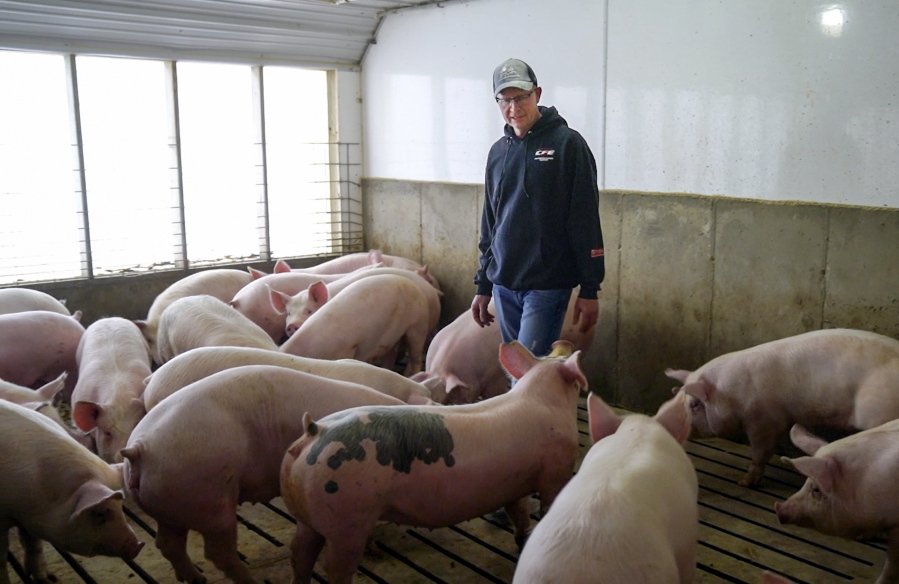HOSPERS, Iowa — In Sioux County, where swine barns interrupt the vast landscape of corn-stubbled fields, exports of meat, grain and machinery fuel the local economy. And there’s a palpable sense of unease that new Chinese tariffs pushed by President Donald Trump — who received more than 80 percent of the vote here in 2016 — could threaten residents’ livelihood.
The grumbling hardly signals a looming leftward lurch in this dominantly Republican region in northwest Iowa. But after standing with Trump through the many trials of his first year, some Sioux County Trump voters say they would be willing to walk away from the president if the fallout from the tariffs causes a lasting downturn in the farm economy.
“I wouldn’t sit here today and say I will definitely support him again,” said 60-year-old hog farmer Marv Van Den Top. “This here could be a real negative for him.”
Last week, Trump announced plans to impose tariffs on a range of Chinese goods, a move aimed at punishing Beijing for stealing American technology. The Chinese government responded with a threat to tag U.S. products, including pork and aluminum, with an equal 25 percent charge.
That sent a chill through places like Sioux County, which ranks first among Iowa’s 99 counties in agricultural exports. In 2016, the county sold $350 million in meat, grain, machinery and chemicals overseas. Far closer to the sparsely populated crossroads of South Dakota and Minnesota than Iowa’s bustling Des Moines metro area, Sioux County is home to just 34,000 people, but more than 1 million hogs, 6 million chickens and nearly as impressive numbers of cattle and sheep.
Brad Te Grootenhuis sells about 25,000 hogs a year and could lose hundreds of thousands of dollars if the tariffs spark a backlash from China. He said it’s possible he would abandon Trump if pork’s price decline continues and lasts.
“Any time you’re losing money, nobody’s happy,” the 42-year-old farmer said. “I’ve got payments to make, plain and simple.”
Nationally, opinions on Trump’s tariffs, which were a central part of his campaign pledges to get tough on China, are mixed.
Although GOP congressional leaders have argued tariffs would prompt a trade war and have urged Trump to reverse course, 61 percent of Americans who identify as Republicans nationwide favor a tariff, according to a national poll taken this month by The Associated Press-NORC Center for Public Affairs Research. Still, 39 percent of Republicans say it will lead to a decrease in jobs, according to the poll, compared to 32 percent who think it will lead to an increase. That’s similar to the views of all voters, the survey shows.
Countermeasures by China, which is second only to Canada in importing Iowa products, could cause pain across the American agricultural sector, according to economists. For instance, a pork tariff imposed by China, which spent $42 million on Iowa pork products in 2017, would back up the Iowa market and force prices sharply downward.
“Retaliatory tariffs from China would have a devastating impact on U.S. agricultural exports, especially if they focus on products like soybeans and hogs,” said Adam Kamins, a senior economist at Moody’s Analytics. “This puts northwest Iowa and the Great Plains more broadly on the front line in a trade war.”



